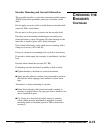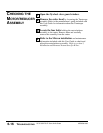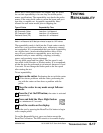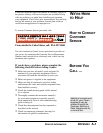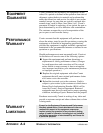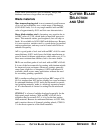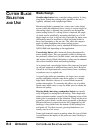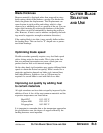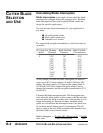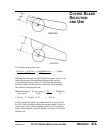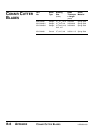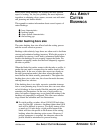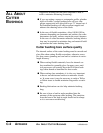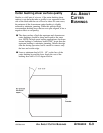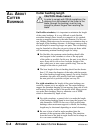
Blade thickness
Because material is displaced rather than removed in rotary
knife cutting, think of the blade as a wedge. The thicker the
blade, the greater the displacement. This displacement can
cause fracture in rigid profiles and tubing, which is often
observed as a whitening on all or a portion of the cut. You can
reduce this fracturing by reducing the thickness of the blade.
(This effect can also be minimized by heating the profile or
tube. However, if heat is used to enhance cut quality, the bush-
ings must be supportive enough to minimize distortion.)
If the cutting blade is too thin, it may actually deflect within
the bushing bore. This can lead to "S" shaped cuts or prema-
ture blade breakage.
Optimizing blade speed
Flexible extrudates generally require a very fast blade speed
with a slicing action for best results. This is due to the fact
that even minimal interruption can cause a blade jam on a
product that has little or no internal strength.
On the other hand, rigid extrudates may require different blade
speeds to obtain the desired cut quality. What's needed for a
particular application depends on blade style, internal heat,
and blade thickness. Speeds as slow as 300 rpm may be
required if a curved blade is used with little or no heat.
Improving cut quality by adding heat
to certain materials
All rigid extrudates can have their cut quality improved by the
addition of heat. A few of the most common materials and the
respective temperatures are listed below:
Rigid PVC 110°-125° F
Styrene ABS 120°-135° F
Polypropylene 160°-200° F
It is important to remember that as the temperature approaches
the glassification zone, the degree of support offered by the
bushing becomes more important.
UGE059/1003 CUTTER BLADE SELECTION AND USE
APPENDIX B-3
CUTTER BLADE
SELECTION
AND
USE



